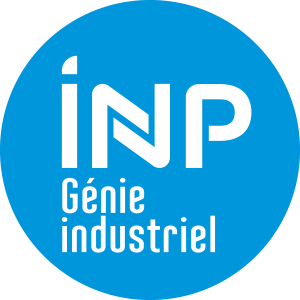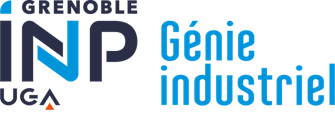Number of hours
- Lectures 21.0
- Projects -
- Tutorials 21.0
- Internship -
- Laboratory works 6.0
- Written tests -
ECTS
ECTS 6.0
Goal(s)
The aim of this course is for students to be able to integrate economic issues (e.g. productivity, location, private and social costs, value, competition and strategy) and social issues during the industrial development stage.
A revision of the issues relating to business strategy, competition, profitability of the production system and also in sustainability, both in terms of industrial relations and employee commitment as well as employee health & security aspects.
Content(s)
Section on Sociology
1. Production systems and corporate culture
2. Skills: business, versatility, careers
3. Job design: socio-technical interdependencies, rotations, flows, organisational slacks
4. Management and coordination plans of action
5. Dynamic learning
6. Employee participation: feedback, operational quality groups, operational management
7. Socio-organisational aspects of industrial risks
Section on Economics
1. Economic dimensions of designing organisations when completing the Offer
2. Tactical effectiveness: activity and information coordination depending on the demand
3. Individual and team motivation: incentives
4. Overall economic vision of industrialisation and organisational architecture of the different sectors/branches
5. International and spatial dimensions of global industrialisation
6. Competition and industrialisation: principles and cases studies
7. Strategic dimensions of industrialisation: commitment to production capacities installed, location, lock-in and dominant design
8. Innovation and industrialisation
9. Sustainable industrialisation and societal challenges of industrialisation
Basic Economics course from the 1st year - Sociology of Work and Analysis of Work Activity
Areas of study:
-Sociology of work and organisations - Ergonomics
-Industrial Economics and Business Economics for industrialisation processes within a company
-Corporate strategy
1st exam period: continuous assessment (50%) and written exam (50%)
2nd exam period (resits): Written exam
E1 = Final written exam from the 1st exam period
E2 = Final written exam from the 2nd exam period
N1 = Final mark from the 1st exam period
N2 = Final mark from the 2nd exam period
The course exists in the following branches:
- Curriculum - Engineer IPID apprentice program - Semester 9
- Curriculum - Engineer student Master SCM - Semester 9
- Curriculum - Master 2 GI SIE program major SPD - Semester 9
- Curriculum - Engineer student Master PD - Semester 9
- Curriculum - Master 2 GI GID major GOD - Semester 9
- Curriculum - Master 2 GI GID major DPD - Semester 9
- Curriculum - Master 2 GI SIE program major SOM - Semester 9
Course ID : 5GUC3800
Course language(s): 
You can find this course among all other courses.
Bourgeon, L. & Demil, B., 1999. Slack organisationnel et innovation: application au secteur hospitalier public. Dans VIII ème conférence de l’Association Internationale de Management Stratégique.
Delbridge, R., 2003. Workers under lean manufacturing. The new workplace, p.19–36.
Drucker, P.F., 1999. Knowledge-worker productivity: the biggest challenge. California Management Review 41 (2), 79-94.
Jiang, B., Baker, R.C., Frazier, G.V., 2009, An analysis of job dissatisfaction and turnover to reduce global supply chain risk: Evidence from China, Journal of Operations Management, Volume 27, Issue 2, April 2009, Pages 169-184
Fiegenwald, V., Cholez, C., Reverdy, C., 2010, Management of transboundary risks in a low-volume industry: The role of boundary objects and boundary spanners, Egos Colloquium.
Gonon, O., Volkoff, S., 2003, « Les régulations des salariés vieillissants : travailler ailleurs, travailler autrement ? » Vie et vieillissement, vol.2, n°1-2, avril 2003, 53-57.
Ginsbourger, 2006, « L'usine qui pourrait échapper à la délocalisation. Intervenir pour l'emploi « par la compétence » », Gérer et comprendre, n°83, 15-24
Pagell, M. and LePine, J.A., 2002, Multiple case studies of team effectiveness in manufacturing organizations. Journal of Operations Management 20, 619-639.
Preechachanchai, O. et al., 2011. From Japan to Sweden; Lean Product Development System in Cultural Contexts, Sweden: Institute of technology, Linko?ping University.
Ruffier J., 1996, L'efficience productive. Comment les usines marchent, MSH Rhône-Alpes
Weick, K.E. & Roberts, K.H., 1993. Collective mind in organizations: Heedful interrelating on flight decks. Administrative science quarterly, p.357–381.
Zwolinski, P. & Sagot, J.C., 1996. Reconception ergonomique d’un atelier de décompte. Dans Actes du XXXI e?me congre?s de la Socie?te? d’Ergonomie et de Langue Franc?aise. XXXI e?me congre?s de la Socie?te? d’Ergonomie et de Langue Franc?aise. Bruxelles, p. 238–246.



